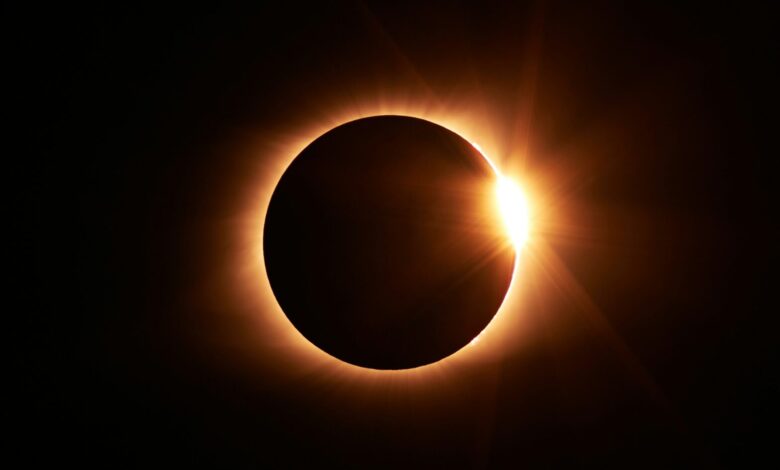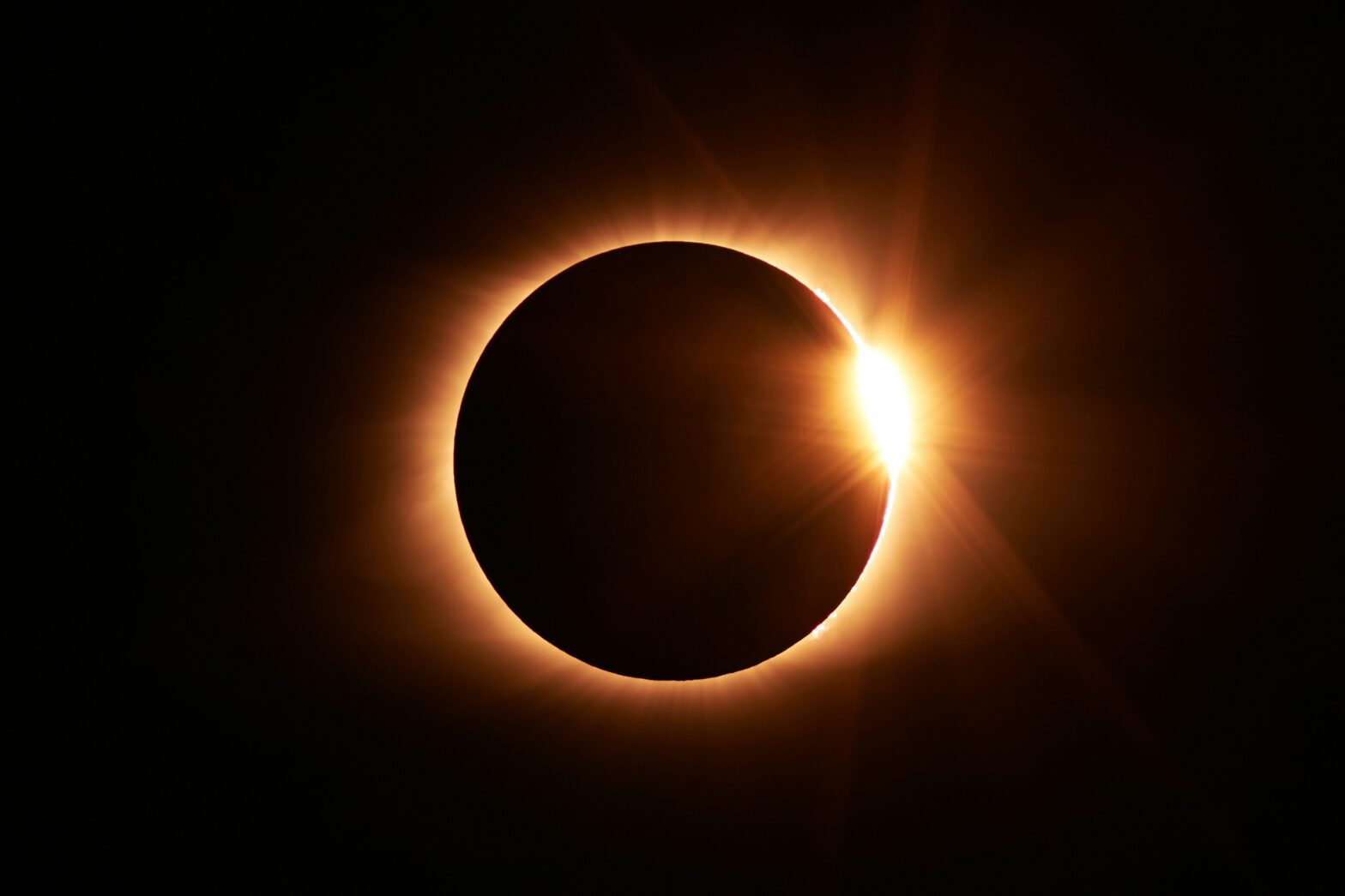Is It Safe to Fly During a Solar Eclipse? Here’s What to Know


The breathtaking display of a solar eclipse inspires wonder among skywatchers everywhere. For millennia, people have been enthralled by the moon’s shadowing effect on Earth due to the unusual occurrence of the moon precisely aligning with the sun. We’ve all seen those epic photos taken from aircraft, but is there any truth to the rumors of turbulence or disrupted flight paths? For those with travel plans during this celestial event, a question arises: Is it safe to fly during a solar eclipse?
Is It Safe to Fly During a Solar Eclipse?
Without a doubt, the answer is yes! Flying during a solar eclipse poses no inherent danger to aircraft or passengers. Generally speaking, commercial aircraft fly high above any potential effects the eclipse may have on the amount of sunlight.
But there can be some logistical issues with the eclipse, especially for planes that are in the path of totality, which is where the sun will be hidden for a short while. While the idea of witnessing this event from above the clouds sounds incredible, there might be more to consider than just the view. Let’s explore the potential safety concerns and what you need to know before booking your eclipse flight. Here’s what you need to know about eclipses and air travel:
When Is the Solar Eclipse?
One of the most eagerly anticipated events of the year is the total solar eclipse. On April 8, 2024, an eclipse will occur that can be seen in North America, crossing portions of Mexico, the USA, and Canada. It will pass through Texas and exit Maine, in the United States of America.
The last solar eclipse that the USA saw was in 2017, and the event was known as the “Great American Eclipse” since it was visible from every corner of the country. This total solar eclipse, which will traverse 12 states, is the last one to be seen in all of the USA until 2044. Thus, you may wish to pick up a set of solar eclipse viewing glasses if you have to take a flight on April 8 in the afternoon.
Will There Be Crowding And Delays?
Particularly at airports along the eclipse’s path of totality, the eclipse’s appeal may cause an increase in aviation traffic. The FAA (Federal Aviation Administration) advises travellers to plan for possible delays as they expect busier skies. If possible, plan flexible travel or include a buffer period in your schedule. Certain airlines, notably Delta, have introduced sold-out special flights specifically for observing eclipses.
The FAA reports that on April 8, there may be delays at these airports:
- Arkansas’s Little Rock
- Chicago
- Indianapolis
- Boston
- Missouri’s Kansas City
- Buffalo
- Cleveland
- Ohio’s Toledo
- Pennsylvania’s Erie
- Memphis
- Texas’s Austin
- Dallas
- Houston
- Texas’s San Antonio
- Vermont’s Burlington
Viewing And Safety For Passengers
While there’s no special “eclipse protocol,” pilots will likely exercise extra caution, especially during totality. This may involve using airport lighting systems typically used at night for optimal visibility. Don’t be alarmed by a sudden “dusk” within the cabin – it’s simply a precautionary measure.
Totality, the brief moment of utter darkness, is the only time it is safe to look straight at the sun. Looking directly at the sun at any other moment, even during partial phases, can result in irreversible eye damage. The flight crew will put safety first and won’t try to maneuver to allow passengers to see the eclipse. If you want to see the celestial spectacle with your own eyes, bring along certified eclipse glasses.
Getting Ready For A Stress-Free Trip On Eclipse Day
The following is a list of crucial advice for a hassle-free journey during a solar eclipse:
- If you’re heading to a region where totality is occurring, make sure to book your flights well in advance.
- Pack your patience and be ready for any delays.
- Save entertainment alternatives on your phone in case your flight is delayed.
- Bring certified eclipse glasses if you want to see the eclipse.
- Recognise that the crew is focused on your safety and accept that they are unable to fulfil requests to view.
In addition to these safety considerations, pilots should also be mindful of potential disruptions to air traffic during a solar eclipse. With millions of people flocking to witness this celestial event, airports and airspace may experience increased congestion and delays. Pilots should stay informed of any temporary flight restrictions or altered routes issued by air traffic control to ensure a smooth and efficient journey.
By following these tips and understanding the realities of flying during a solar eclipse, you can ensure a safe and enjoyable travel experience while witnessing this unforgettable astronomical event.
Safe Travels!
Despite these precautions, flying during a solar eclipse can be a once-in-a-lifetime experience for both pilots and passengers. Imagine cruising through the sky, with the earth below bathed in an ethereal twilight, and the moon’s shadow dancing across the landscape. It’s a sight few will ever forget.
In the end, flying during a solar eclipse presents certain difficulties, but it is possible to accomplish it safely with enough preparation and respect for safety procedures. At all times, pilots should prioritize the safety of their passengers and crew, keep alert, and stay informed. If you have particular inquiries concerning your flight and are still wondering “Is it safe to fly during a solar eclipse,” kindly get in touch with your airline or visit the FAA website for further details. You may have a pleasant and safe flight together with the wonder of the eclipse with a little preparation and awareness.
Source link : travelnoire.com
























































